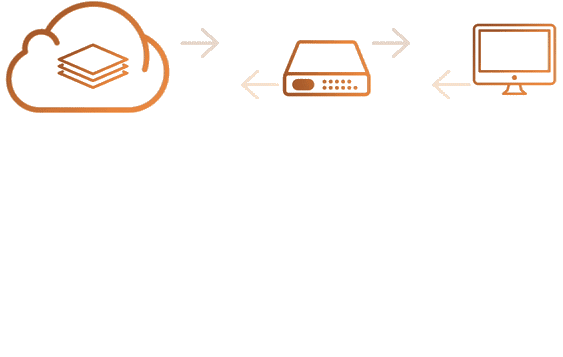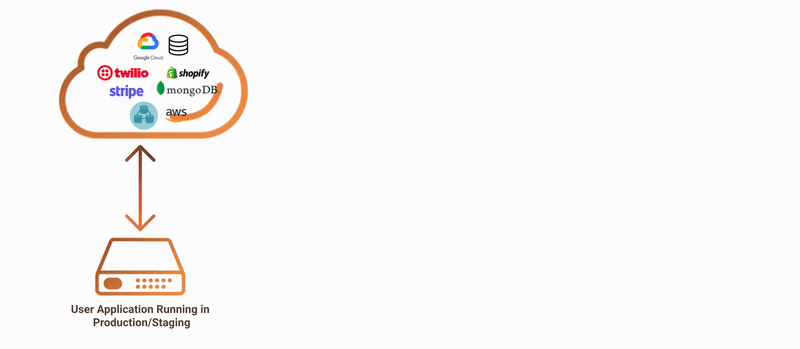How Keploy Works? (v1.0.0)
Keploy is added as a middleware to your application that captures and replays all network interaction served to application from any source.
Step 1 : Record Unique Network Interactions as Test Case
Once you start the application in record mode to capture API calls as test cases.
export KEPLOY_MODE="record"
Now, when the application serves an API, all the unique network interactions are stored within Keploy server as a test-case.

Step 2 : Replay Test-Cases
Let's say you developed new application version(v2). To test locally, start the application after setting Keploy SDK mode to test mode to replay all recorded API calls/test cases.
export KEPLOY_MODE="test"
Now, when the application starts:
- Keploy will download all the previously recorded test-cases/API calls with a 5 sec delay(configurable application build time).
- When the application will try to talk to any dependencies like DBs, Routers, vendor services, Keploy will intercept and provide the previously recorded dependency response.
Note: You didn't need to setup test-environment here. 🙅🏻♀️
- Keploy will compare the API response to the previously captured response and a report will be generated on the Keploy console.
You can test with Keploy locally or can integrate Keploy with popular testing-frameworks and existing CI pipelines.
Note: You can generate test cases from any environment which has all the infrastructure dependencies setup. Please consider using this to generate tests from low-traffic environments first. The deduplication feature necessary for high-traffic environments is currently experimental.
